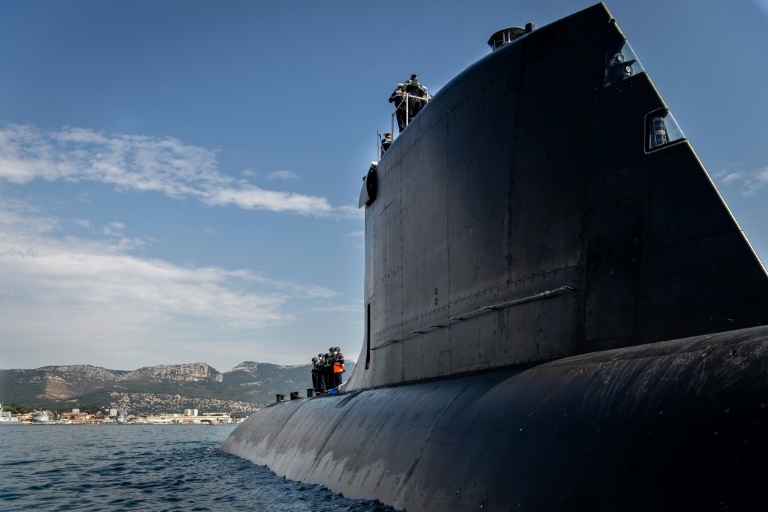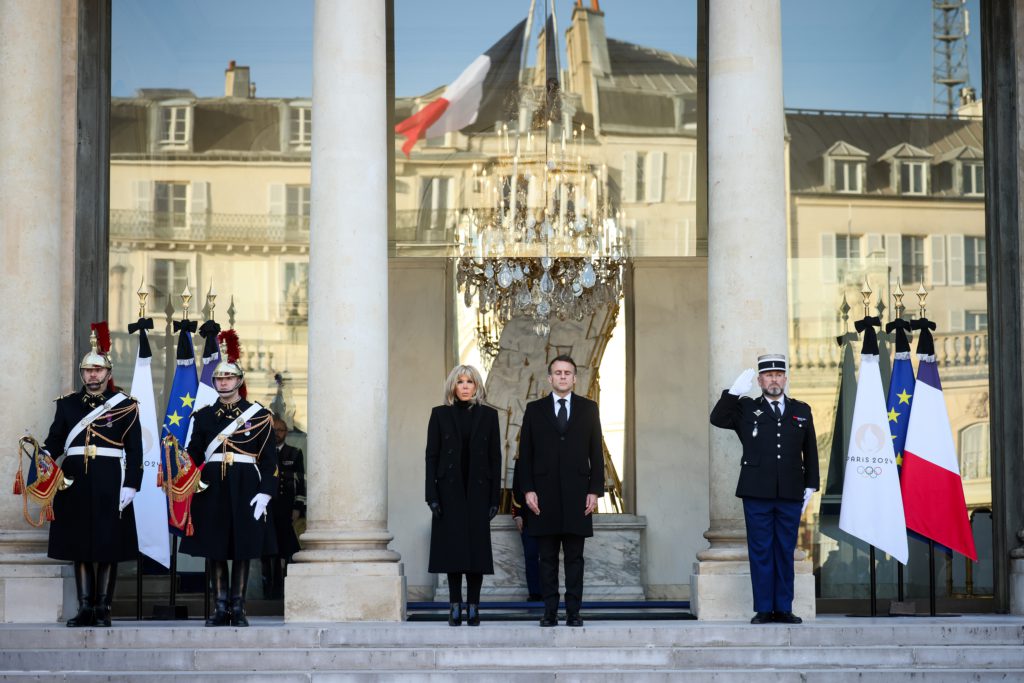President Emmanuel Macron and Indian Prime Minister Narendra Modi on Tuesday vowed to “act jointly” in the Indo-Pacific region, as a row intensified with Australia and the US over a ditched submarine contract.
Macron’s telephone talks with Modi were timed conspicuously as French anger appears undiminished after Australia pulled out of a submarine contract in favour of US submarines as part of an alliance with Washington and the UK.
US officials have said US President Joe Biden is seeking a phone call with Macron in the coming days to ease tensions but this has yet to materialise, with Macron taking the unprecedented step of recalling France’s ambassadors to Australia and the United States.
The French presidency said both leaders agreed they would “act jointly in an open and inclusive Indo-Pacific area”.
Macron assured Modi of France’s continued “commitment to the strengthening of India’s strategic autonomy, including its industry and technology base, as part of a close relationship based on trust and mutual respect”.
The statement from Macron’s office said France and India’s shared approach would be aimed at promoting “regional stability and the rule of law, while ruling out any form of hegemony”.
The new three-way strategic alliance, AUKUS, is widely seen as seeking to counter the rising power of China in the area.
Paris has in the last years sought to tighten ties with India: In 2016 the two sides signed a multi-billion dollar deal for 36 French Rafale fighter jets for New Delhi.
While the agreement is under investigation in France for kickback allegations, it is viewed as a commercial and diplomatic success for Paris.
Indian media have in recent days speculated that Australia’s cancellation of the submarine deal could spark French-Indian talks about a submarines agreement of their own, possibly involving a transfer of technology.
During a September 2020 visit to New Delhi French Defence Minister Florence Parly discussed the idea that the Rafale deal could lead to sales of other weaponry, including submarines, according to a French defence ministry source.
“The Indian air force is completely satisfied with these planes, and that means were are well-placed for the future,” the source said.
Possible coming arms sales, apart from the submarines, discussed in New Delhi included helicopters, ammunition and fighter jet turbines, the source said.
– ‘Clarification, not ‘reconciliation’ –
France called it a “stab in the back” after learning the US had secretly led talks about the new strategic alliance and struck the deal for the delivery of American nuclear-powered submarines to Australia.
Australia informed France only hours before pulling out of the submarines deal, according to the French government.
As the crisis unfolded Biden requested an urgent conversation with Macron, for which the French have still not announced a date.
Once it happens, Macron will demand “clarifications” from Biden, his political advisor Stephane Sejourne said on Tuesday, warning that nobody should expect “a reconciliation talk”.
He said the way that the French-Australian deal was cancelled brought up many questions “including about the concept of what it means to be an ally of the Americans”.
Behind the contract spat were deeper differences about strategies in the Indo-Pacific, he said.
France, which has has a presence in the region through overseas territories such as New Caledonia, has been trying to calm down tensions in the area, but “the United States is in more of a confrontation with China”, Sejourne said.
The US policy “will hugely annoy China and increase tensions in the region”, he said.
French defence ministry spokesman Herve Grandjean meanwhile wrote on Twitter that the end of the deal was above all “bad news” for Australia.
“The first Attack submarines were to be delivered by 2030. With this new AUKUS partnership, it will be more like 2040. That’s a long time, when you see how fast China is militarising,” he said.
European ministers meanwhile rallied around France on Tuesday as the submarines dispute threatened to delay trade talks with Washington and Canberra.
German Europe Minister Michael Roth said France’s diplomatic crisis with the US was a “wake-up call for all of us” on the need to unite an often divided EU on foreign and security policy.
burs-jh/sjw/lc










